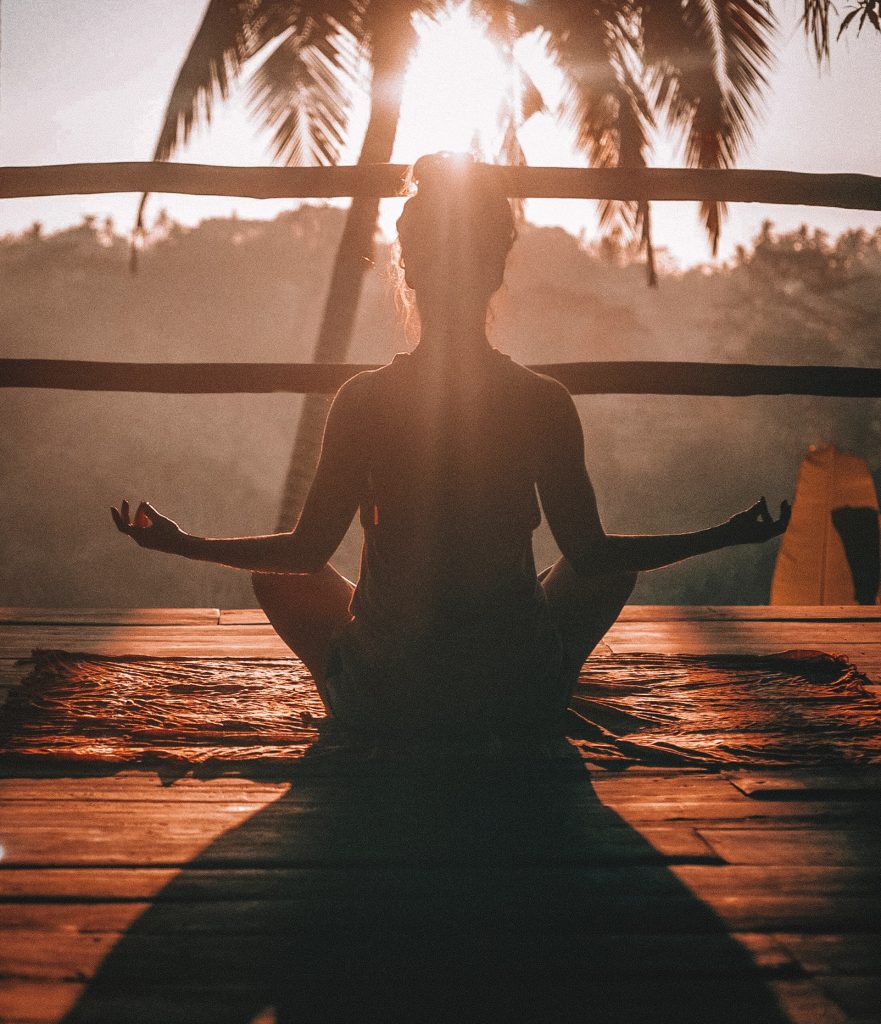
What do you think of when you hear the word “meditation”? You might envision rhythmic flute music and someone sitting in a cross-legged lotus position on a mat or a rug. Are romantic visions of ancient, enchanting India leaping into your mind?
Meditation did originate in India, as far as we can tell, thousands of years ago. And while sitting in the lotus position is common for some who meditate, it’s definitely not required. You can light candles if that helps create a calming, peaceful atmosphere, but that’s not an essential part of the practice.
You may have visions of incense and a wise-looking yogi chanting mantras. At least, this is sometimes the idea for people who have never practiced meditation. While you can make any or all of those experiences a part of your meditation practice, there is no right or wrong way to go about it.
Meditation Simply Means This:
All you really need to know is that meditation helps calm your mind. You train your brain for better self-awareness. You can improve concentration and focus. Different forms of meditation help you quiet your racing mind, balance your emotions, and enjoy calm and peacefulness.
Because of those effects, many physical and mental health benefits are also yours.
Some meditation practices have you focus on a physical object with your eyes open. Others will have you close your eyes. You may be seated or lying on your back. Special breathing exercises can be used as a meditation practice on their own or to help you enter and exit a session.
Meditation is nothing more than blocking out the outside world and looking inward. You remove yourself from the busy, hectic daily routine you follow. There is a sense of getting to know yourself better and rejuvenating with peace, quiet, and inner reflection.
We mentioned shutting out the outside world.
That’s not what happens with certain forms of meditation. For example, mindfulness has your eyes open, and you are being absolutely mindful and aware of everything that’s going on around you. That said, most meditation practices aim to calm your mind and improve your concentration and self-awareness.
You can also reach another level of consciousness and knowledge of who you are. Because of the frantic, fast-paced lives many of us lead, many people enjoy the stress-relieving benefit of meditation. Just remember that there is no wrong or right way to meditate. Do what works to enjoy improved overall wellness from head to toe.
Thank you for reading. I hope that cleared up that question for you. I do plan to continue submitting several more articles answering meditation questions, so stay tuned. If you would like to get started and don’t want to wait, you can grab my freebie “Ten Common Meditation Questions” ebook here: GET THE BOOK.
If you REALLY can’t wait to get started and want a low-cost video course that includes video lessons of the downloadable PDF manual, a journal, a PDF guide to five breathing techniques, and four guided meditations of 9–15 minutes each, I offer “Modern Day Meditation, A Beginner’s Guide to finding Calm, Peace, and Balance.” You can get more information/order here: GET THE COURSE.

